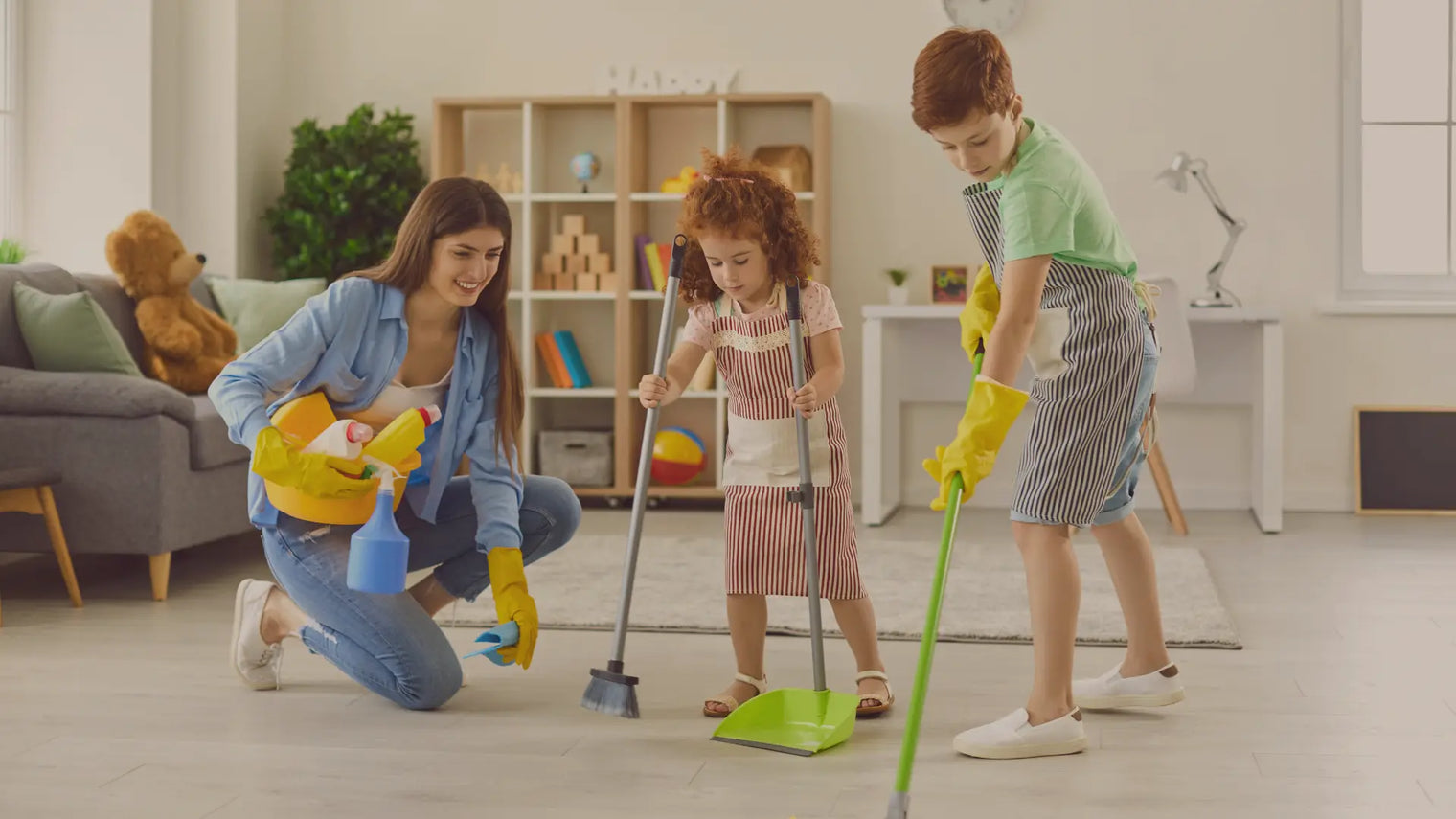Learn about practical tips for introducing your child to chores in a fun and meaningful way.
Teaching your children about chores can seem like a daunting task. Where do you start? What can they handle? How can you make it enjoyable? And most importantly, how can you turn it into a life lesson that they will carry with them? Fear not, because we’ve got you covered.
Introducing chores to kids isn’t just about keeping a tidy home—it’s a powerful way to foster responsibility, organization, and a strong work ethic from an early age. By breaking tasks down into manageable steps, making the process enjoyable through games, and using tools like chore charts or eco-friendly cleaning products, parents can help children build essential life skills in a way that feels fun and rewarding.
Start Small and Keep it Age-Appropriate
Begin with one task at a time that matches your child’s age and ability. A toddler might be ready to pick up toys, while an older child might help with setting the table or loading the dishwasher. Over time, introduce more complex chores and explain not only how to do them, but why they matter. This builds understanding and appreciation for the work involved in maintaining a home.
A simple plan can go a long way. A visual schedule with stickers, a weekly goal chart, or even a small reward system—like earning a family outing or a special treat—can boost motivation. Tangible milestones help make their progress visible and encourage a sense of pride in their contributions.
Make Chores Meaningful
Decluttering together can be a meaningful activity. Beyond teaching cleanliness and organization, it’s an opportunity to talk about letting go and giving to others. Involving children in deciding what to donate gives them a sense of ownership and reinforces the value of sharing with those in need.
You can also use chore time as a teachable moment about sustainability. Introduce them to eco-friendly products and explain how using natural ingredients helps protect the planet. These small choices plant seeds of environmental responsibility that can grow into lifelong values.
Keep It Fun and Flexible
As you work together, small strategies can make a big difference. Show them how to clean efficiently with a “top-down” approach—dusting before vacuuming, for instance—and use this as a way to teach logical thinking and problem-solving. Help them see how preparation makes a task easier by setting out supplies the night before or tidying up a room before deep cleaning.
Chores don’t have to feel like work. Turn tidying up into a game by racing the clock or turning it into a scavenger hunt. Making tasks fun not only increases engagement but also helps build a positive attitude toward responsibility.
Chore charts are great, but make sure they evolve. As your child grows, so should their tasks. Maybe they’re ready to plan a grocery list, sort laundry, or help with a home maintenance task like checking batteries in smoke detectors. These experiences give them a deeper understanding of how a household runs and help them develop into capable, independent individuals.
Create a Routine That Sticks
When chores become part of a regular rhythm—just like brushing teeth or reading a bedtime story—they become a habit rather than a struggle. Consistency helps kids understand expectations and creates a sense of security around daily responsibilities.
Start by choosing specific times for tasks—maybe tidying up toys before dinner or making the bed first thing in the morning. Use cues from your daily schedule to anchor the chores, so they feel like a natural part of your family's rhythm. For younger children, use songs, timers, or even a fun "chore dance" to signal when it's time to clean. For older kids, giving them a say in when they complete certain tasks (as long as they’re done by a set deadline) builds time management skills and a sense of autonomy.
Consistency is key, but flexibility is important too. Life gets busy, and sometimes routines will be interrupted—and that’s okay. What matters is getting back on track without guilt or stress. Over time, these small daily efforts become second nature, laying the foundation for lifelong habits of responsibility and self-discipline.
Fostering Growth Through Responsibility
Introducing your child to the concept of chores is about much more than keeping a clean house. It’s a journey of growth, learning, and development. Through chores, children learn responsibility, time management, and the value of work—skills that will serve them well throughout life. By following these expanded strategies, you can transform chores from a mundane necessity into an engaging opportunity for growth, setting your child on the path to becoming a responsible, capable adult. Explore more examples of how to involve your toddler in chores.

